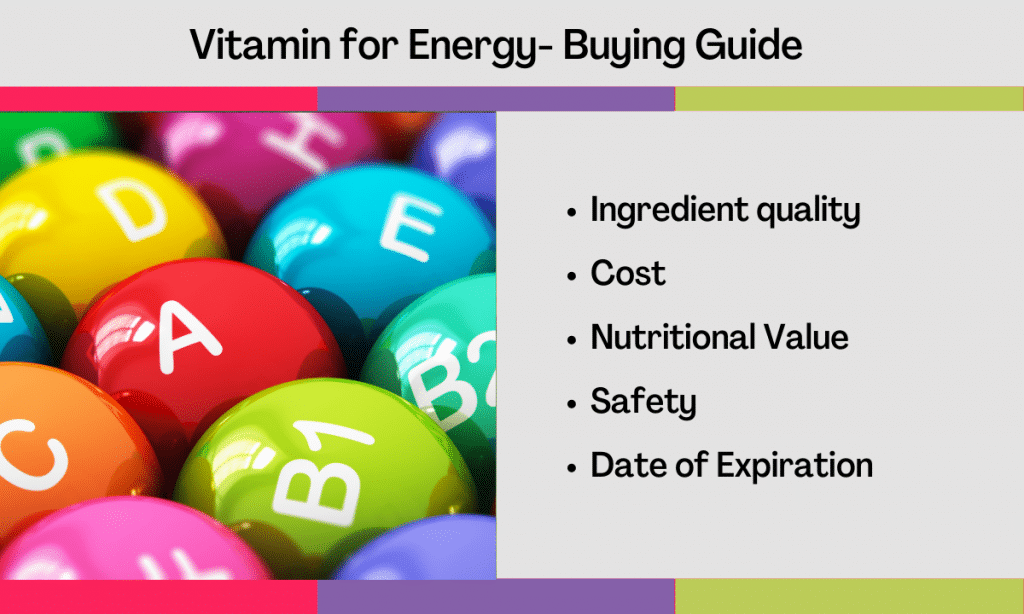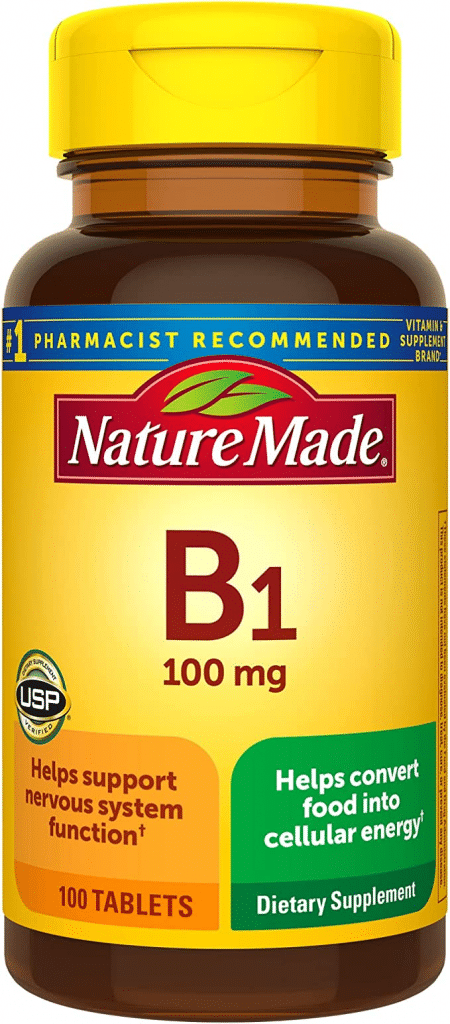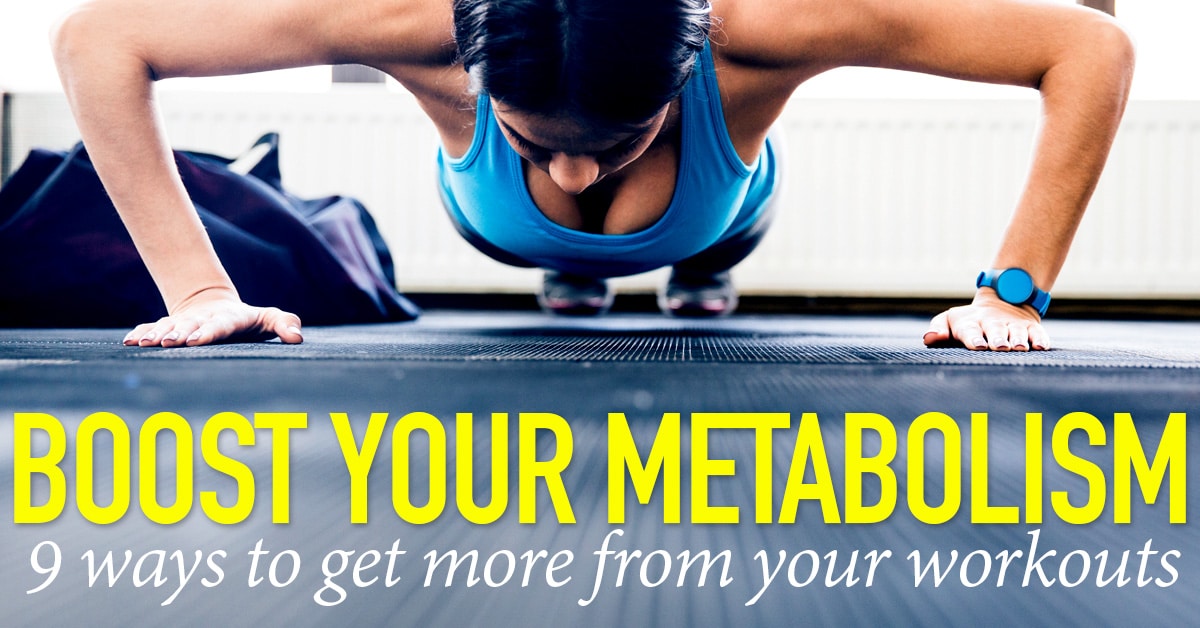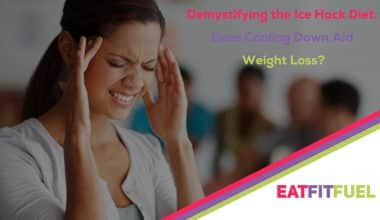Do you feel more worn out and exhausted than usual? Do you need more energy, or the desire to complete your daily tasks? If so, you might benefit from a refresher course on the vitamins that give you energy and how to regain your sense of self.
A busy lifestyle, erratic eating patterns, or a health issue that interferes with your body’s ability to absorb nutrients properly can result in outright exhaustion. It’s easier than you might imagine to replenish your energy by taking the best vitamin for energy.
Which Vitamin Boost Energy?
You can increase your energy levels by taking a variety of vitamins. When it comes to “vitamins,” they don’t just mean products with the word “vitamin” on the label (like vitamin C or vitamin K). Instead, it refers to any nutrient, mineral, herb, or other components that could be present in a dietary supplement to aid in boosting your Lenergy.
Moreover, it’s crucial to understand that vitamins and minerals cannot generate energy independently. Carbohydrates, fats, and proteins are the primary sources of energy. However, specific vitamins and minerals found in dietary supplements can affect, support, or increase the processes in the body that produce energy.
B vitamins and CoQ10 are two of the most frequently found ingredients in energy-enhancing vitamins. While some supplements contain natural ingredients, like beetroot or omega-3 fatty acids, others contain caffeine to boost energy.
It’s essential to understand how each vitamin increases energy levels in the body. This way, you can better choose the supplement that best meets your health needs. This may also assist you in determining whether you require a multivitamin containing several energy-enhancing ingredients or a supplement emphasizing a single component.
Finest Vitamin for Energy — Buying Guide
Ingredient Quality
Look for premium, all-natural ingredients with few fillers or synthetic additives. Select vitamins that have undergone testing, and adhere to industry standards. Avoid using products that are synthetic or that contain artificial sweeteners, flavors, or colors.
Cost
The cost of vitamins varies depending on the brand and the standard of the ingredients. To make sure you are getting the best value for your money, it is essential to stick to your budget and compare prices across different brands.
Nutritional Value
The vitamins should include a variety of nutrients that your body needs in a balanced amount to support normal energy levels. It might contain iron, vitamin C, and the B-complex vitamins, crucial for generating and maintaining energy. Other vitamins and minerals, like zinc, magnesium, and potassium can support proper electrolyte balance and increase energy.
Safety
Safety should always be a priority when taking supplements. Examine each vitamin’s components to identify any contaminants, such as heavy metals or toxins, that might be harmful if consumed. Before taking any new vitamins, always check with your doctor to learn about any potential side effects.
Date of Expiration
Make sure any vitamins you buy have an expiration date in the future, so you can be sure they still work when taken. Even though they are safe to consume, expired vitamins may not have the same potency as fresh ones, which means you may not experience the full benefits.
The 4 Best Vitamin for Energy
B Vitamins
B vitamins are a group of water-soluble vitamins that serve as cofactors, or essential components, in various bodily chemical processes. They are necessary for maintaining healthy cell function in the body. They help in the body’s ability to utilize food as energy (metabolism), produce new blood cells, and preserve the health of the skin, brain, and other body tissues.
1. Vitamin B-1 (Thiamine)
Your body uses thiamine to convert food into energy. Thiamine is sometimes called an “anti-stress” vitamin, along with other B-complex vitamins, because it may improve the immune system, and increase resistance to stress in the body.
Every cell in your body uses adenosine triphosphate (ATP), which is created by your body and used to create energy. Lack of vitamin B1 can cause depression, nausea, and weakened muscles.
Numerous food sources naturally contain vitamin B1. Thiamin can be found in enriched foods, like breakfast cereals and whole grain bread, as well as in meats like pork, or in beans, lentils, pulses, green peas, yogurt, or nuts. Cauliflower, oranges, eggs, potatoes, and asparagus are foods rich in vitamin B1.
Dietary supplement
The Nature Made Vitamin B1 100 mg Tablets can help in maintaining a healthy nervous system and brain. This gluten-free B1 supplement is a dietary supplement made from the finest components with no added colors, flavors, or preservatives.
Recommended Dietary Allowance (RDA) for men ages 19 and older is 1.2 mg daily, and for women in the same age range 1.1 mg daily. For pregnancy and lactation, the amount increases to 1.4 mg daily.
2. Vitamin B-2 ( Riboflavin)
The essential nutrient vitamin B2 is necessary for maintaining general health and functions in various ways. You can ensure the body has the nutrients to function correctly by eating a diet high in riboflavin-rich foods.
Riboflavin helps to convert food into energy and also assists the body’s breakdown of steroid hormones, drugs, and fats. This means that fatigue and low energy levels can result from riboflavin deficiency. They are naturally present in foods and can also be taken as supplements. Riboflavin is mainly found in eggs, milk, meat, spinach, and Yoghurt.
Dietary supplement
Nutricost Vitamin B2 Riboflavin 400mg was developed to provide an alternative to drastic dietary changes, while also improving in the building of the body’s riboflavin (B2) stores. For added safety, these B2 400mg tablets have been third-party tested and are manufactured in a GMP-compliant, FDA-registered facility.
They come in a bottle of 120 capsules, so they last a long time. Nutricost Vitamin B2 Riboflavin 400mg is also a non-GMO and gluten-free product, allowing those with dietary restrictions to maintain riboflavin levels easily. Each capsule contains a potent 400mg to help provide the body with the required nutrients.
The Recommended Dietary Allowance (RDA) for men and women ages 19+ years is about 1.3 mg and 1.1 mg daily. For pregnancy and lactation, the amount increases to about 1.4 mg and 1.6 mg daily.
3. Vitamin B-3 (Niacin)
Niacin, or vitamin B3, is necessary for converting food into energy. It supports the health of the skin, nerves, and digestive system and enhances circulation. Niacin is essential for the metabolism of fat, carbohydrates, and amino acids. NAD and NADPH, two coenzymes, are the primary forms in which it performs its bodily functions in the body.
To produce energy, NAD is used to break down sugar. In contrast, NADPH metabolizes folate and synthesizes fatty acids, cholesterol, steroid hormones, and vital DNA precursors.
The body can use NAD, abundant in animal-based foods, like meat, poultry, and fish. Natural niacin is present in plant-based foods like grains, legumes, and nuts, but the body can also not utilize it.
Dietary supplement
Adults should take at least 300mg of Tru Niagen per day to gain the most health benefits. You can take it once a day, with or without food, in the morning or at night.
4. Vitamin B12 (Cobalamin)
Your body uses vitamin B12 for various functions, including producing red blood cells, immune system support, and nervous system protection. Additionally, it can help convert the food you eat into glucose, which provides energy.
The human body cannot produce vitamin B12, so we must obtain it from external sources. Natural sources of B12 include beef, fish, poultry, and dairy products. Additionally, it can be consumed as a dietary supplement or combined with specific foods, such as nutritional yeast and fortified breakfast cereals.
Dietary supplement
The Recommended Dietary Allowance for men and women ages 14 years and older is 2.4 micrograms (mcg) daily. For pregnancy and lactation, the amount increases to about 2.6 mcg and 2.8 mcg daily.
Final Thoughts
Due to the fast-paced nature of modern life, it is crucial to maintain energy levels throughout the day. No matter how well we care for ourselves, we sometimes feel low in energy and overall health. So need to take essential vitamin for energy to do day-to-day activities.
Taking high-quality supplements can be extremely beneficial. Choose the right brand and highly potent ingredients to boost your energy levels.
Frequently Asked Question
What is the best vitamin for energy?
Vitamin B12 is one of the best vitamin for energy because cells need it to produce energy. Vitamin B12 helps in the formation of red blood cells, which transports oxygen in the blood, which is then used for energy production.
Can supplements be dangerous?
Sometimes. A daily multivitamin supplement is usually safe. Some vitamins and minerals, however, are dangerous in high doses if taken as single nutrient supplements.
What vegetables give energy?
Leafy green vegetables, such as spring greens, spinach, cabbage, and watercress are high in energy. This is due to their high concentration of energy-boosting nutrients, such as magnesium and potassium, as well as vitamins A, C, and K.





















